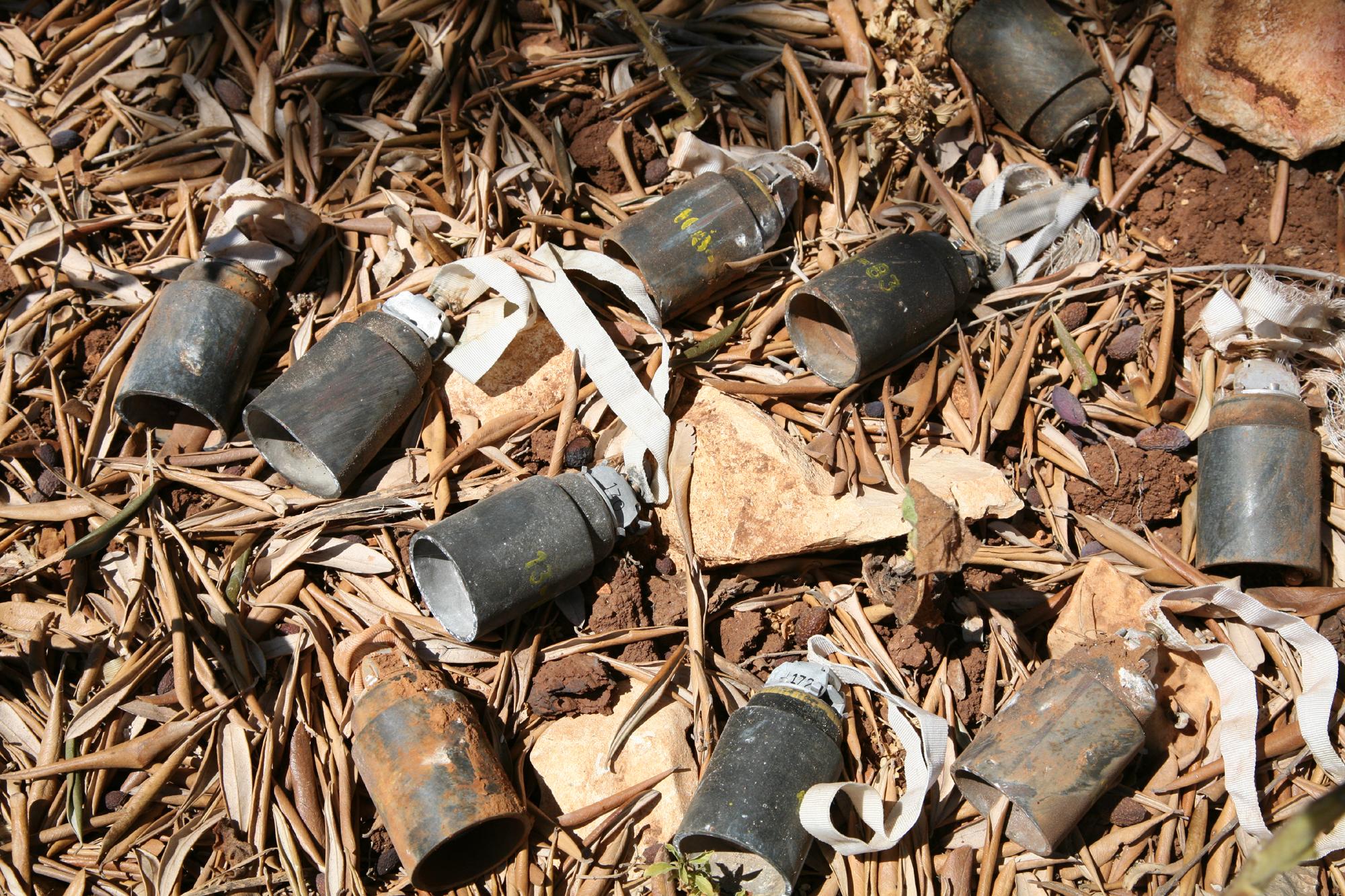Peace organisation PAX works to ban cluster munitions everywhere in the world. Our aim is to ensure strict compliance with the Convention on Cluster Munitions and call on states that have not yet done so to join the treaty. The convention categorically prohibits the use, production, stockpiling and transfer of cluster munitions.
A cluster munition, also known as a cluster bomb, is a weapon containing multiple explosive submunitions. Cluster munitions are dropped from aircraft or fired from the ground, opening up in mid-air to release tens or hundreds of submunitions, which then saturates an area up to the size of several football fields. Anybody within the strike area of the cluster munition, be they military or civilian, is likely to be killed or seriously injured. Moreover, many of the submunitions do not explode as intended, which leaves them to function as landmines. Submunitions can remain a fatal threat to anyone in the area long after a conflict ends. Most victims of cluster munitions are civilians (98% of the victims in 2016 for which the status was known).
In 2003 PAX co-founded the Cluster Munition Coalition, an international coalition of non-governmental organisations to prevent the humanitarian harm caused by cluster munitions. The coalition now has more than 350 members in over 100 countries. In December 2008, 94 countries signed the Convention on Cluster Munitions in Oslo. The Netherlands was one of them. To date, 119 states have joined this life-saving treaty. The Netherlands ratified the convention in February 2011 and has since destroyed all of its cluster munitions stockpiles.
Contact
Cor Oudes, Programme Manager




